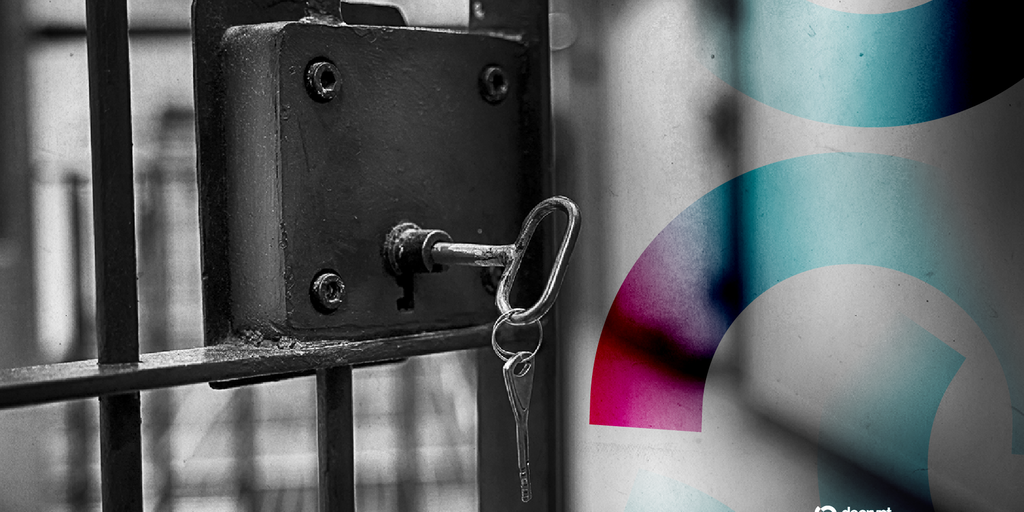In brief
Self-styled Russian crypto expert “Bitmama” has been sentenced to seven years in prison for a $23 million Bitcoin fraud disguised as offshore investments.
Russian prosecutors say she lured clients by promising to convert funds in Dubai to avoid Western sanctions.
Her arrest comes amid rising concerns over Russia’s use of crypto to bypass sanctions and fund covert operations.
A Russian mother who branded herself as a crypto expert has been sentenced to seven years in prison by a Moscow court after orchestrating a ruthless pyramid scheme that defrauded investors of $23 million (2.2 billion rubles) worth of Bitcoin in just 60 days in 2023.
Valeria Fedyakina, from Simferopol, posed as “Bitmama,” a legitimate crypto trader with global offices, promising clients she could transfer their money abroad using crypto to circumvent Western sanctions, according to The Telegraph.
Instead, Russian prosecutors said she emptied her clients’ accounts, in what became one of the country’s largest recent crypto fraud cases.
The fraud occurred as Western sanctions tightened Russia’s access to traditional banking, making crypto an attractive alternative for Russians seeking to move money abroad.
Moscow’s Presnensky District Court sentenced Fedyakina on June 24 to serve time in a penal colony and ordered her to pay $23 million in compensation to her victims.
The prosecution had sought the maximum 10-year sentence under Russia’s fraud statutes.
“Russian crypto criminals use regulatory arbitrage, setting up entities in looser jurisdictions (like parts of the UAE) to mask Russian origins, move funds cross-border, and exploit weak KYC/AML enforcement,” Deddy Lavid, CEO at blockchain security firm Cyvers, told Decrypt.
Fedyakina, 30, operated her business informally under the “Bitmama” and “Bitmama Finance,” arranging deals in Moscow luxury hotels and funnelling funds to the UAE via crypto wallets.
She did the crime “under the guise of investing in her activities in the transportation and purchase and sale of oil, oil products, gold, and other minerals,” a spokesperson for the Investigative Committee of Russia said, as cited in The Telegraph.
“Bitmama” reportedly told victims she would swap their money for digital currency in Dubai to avoid sanctions, but the funds soon disappeared into her crypto wallets stored in the UAE.
The indicted’s personal assistant told investigators that clients initially brought $2-3 million (200-300 million rubles) daily to the office, with amounts later reaching $15 million (1.5 billion rubles) per day, local news outlet Izvestia reported.
Fedyakina was arrested on September 15, 2023, as she attempted to flee Russia for the UAE.
Despite being six months pregnant, she was detained and later gave birth in prison, remaining with her daughter in Moscow’s SIZO No. 6 detention center.
The case represents a distinctly different pattern from state-backed crypto operations, according to Alice Frei, head of security and compliance at Outset PR.
“Criminal schemes like Fedyakina’s are disorganized and opportunistic,” Frei told Decrypt. “They rely on funds from dispersed victims, often through scams, phishing, or false investment schemes.”
“These operations typically favor stablecoins like USDT or USDC, allowing for more predictable value retention and cross-border use,” Frei noted, saying that fraudsters exploit regulatory gaps between jurisdictions, particularly leveraging the UAE’s crypto-friendly environment.
Russia and crypto
Meanwhile, blockchain investigations have uncovered Russia’s growing reliance on cryptocurrency to fund intelligence operations.
A recent Reuters probe revealed how Russia’s Federal Security Service (FSB) used Bitcoin to pay teenage and untrained spies across Europe.
Earlier this month, U.S. authorities charged Ian Mausner with running a $500 million crypto fraud scheme, alleging he misled investors and funneled funds into Russian-linked markets while concealing ties that could violate international sanctions.
Daily Debrief Newsletter
Start every day with the top news stories right now, plus original features, a podcast, videos and more.














